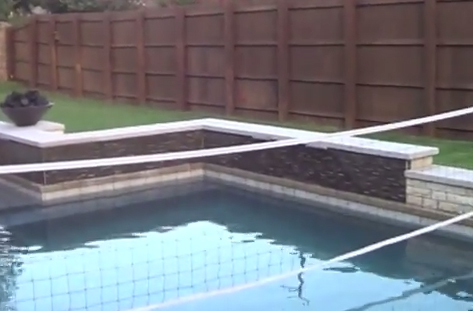exercise
Celeb Tweet: 'If Swimming Is GreatExercise, Explain Whales to Me'
Swimming: Keeping Oldsters Going Despite Their Infirmities
Homeowners often come to the watershape-purchasing process with very specific ideas in mind. Maybe they want a venue exclusively for lap swimming, or a fountain to wash out traffic noise, or a finely finished monument to their refined taste in tile and stone. That's great, and it's fairly easy to tailor a design to meet these needs. More often, however, clients
Through the years, one of my favorite advocacies at WaterShapes has had to do with building awareness among watershapers about the health benefits that result from what you all do for a living. We've worked with the National Swimming Pool Foundation on many occasions, for example, lining up articles that have either reported on research related to the specific benefits of swimming and/or water exercise, or told personal stories of what
Through the years, one of my favorite advocacies at WaterShapes has had to do with building awareness among watershapers about the health benefits that result from what you all do for a living. We've worked with the National Swimming Pool Foundation on many occasions, for example, lining up articles that have either reported on research related to the specific benefits of swimming and/or water exercise, or told personal stories of what
Delivering the keynote address to the World Aquatic Health Conference in September 2008, Dr. Steven N. Blair asked a simple question: Does swimming reduce your risk of dying? As he stressed then and repeats in detail here, the answer is a resounding yes. Indeed, the findings he offers stand among the most compelling reasons ever offered to promote swimming and other forms of aquatic exercise to the general public. Medical science has long seen exercise as a crucial part of a healthy lifestyle. In fact, there’s an enormous amount of evidence about its health benefits – so much that the U.S. Department of Health & Human Services recently stepped up with its first-ever guidelines for physical activity. Lots of individuals, organizations and other entities have proclaimed the positive outcomes of exercise through the years, but never before had the U.S. government published an official set of guidelines. These government recommendations were largely the result of
This is almost certainly the toughest column I’ve ever written – and probably the most important. In past editorials, it hasn’t been unusual for me to share various forms of personal information, some of it about my family, some of it concerning my own health. I’ve been keenly gratified by the words of support I’ve received from colleagues and friends on those occasions, and I thank you here, one and all. This is, I fear, another of those occasions, as I
For a good while now, I’ve been on the lookout for books that define the health benefits of swimming and other forms of aquatic exercise. I’ve largely come up empty, with only a couple of worthy exceptions. It’s been important to me for two reasons: First, I’m convinced (as others in this magazine have argued) that the watershaping industry is doing both itself and its clients a disservice by not promoting the remarkable healthfulness of aquatic activity. I think this is a deficit we desperately need to address – and also that this effort must begin on a solid base of knowledge and fact. Second, as I progress through my forties, I’m finding that running is becoming more and more difficult because of hip problems; my intention is to turn to the water to maintain my physical fitness, but I want to know more about it and how to do it right. So far, the best resource for information about swimming I’ve found is The Complete Book of Swimming by Dr. Phillip Whitten (Random House, 1994). It’s older than some other volumes I’ve found, but I think it’s the best because




















Plain Silly